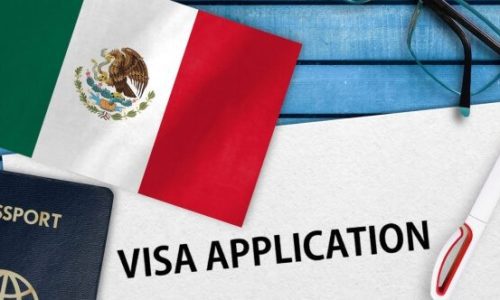- Cot Editor
- business regulations Egypt, Egypt investment law, foreign ownership Egypt, GAFI rules, legal guide Chinese investor
- 0 Comments
- 1023 Views
Legal Guide for Chinese Investors in Egypt – Business Law & Compliance
Understand Egypt’s legal and regulatory framework for Chinese investors. Learn about company laws, foreign ownership rules, taxes, dispute resolution, and translation requirements.
Legal & Regulatory Guide for Chinese Investors in Egypt
Introduction – Investing in Egypt with Legal Confidence
As more Chinese companies look to expand operations into Egypt, understanding the legal and regulatory landscape is essential for success. Whether you are planning to open a manufacturing facility, logistics center, or technology firm, navigating Egypt’s legal system the right way helps you:
Minimize risk.
Protect assets.
Ensure long-term compliance.
Avoid unnecessary delays or costs.
In this guide, we highlight the most important legal considerations Chinese investors need to know before setting up business in Egypt.
Foreign Ownership and Investment Law
Egypt welcomes foreign investment across most sectors and has introduced Investment Law No. 72 of 2017, which guarantees:
100% foreign ownership in most industries.
Freedom to transfer profits and capital abroad.
Protection against nationalization and expropriation.
Equal treatment of foreign and local investors.
Streamlined procedures through the General Authority for Investment (GAFI).
Exceptions may apply in strategic sectors such as petroleum exploration or defense.
Business Structures Available for Foreign Investors
Chinese investors can choose from several legal entities under Egyptian law:
| Entity Type | Features |
| Limited Liability Company (LLC) | Most common; minimum 2 partners, flexible management, easy setup |
| Joint Stock Company (JSC) | Suitable for large-scale investment, requires 3 shareholders |
| Branch Office | Operates under foreign parent company; must register with GAFI |
| Representative Office | For market research only; cannot conduct commercial activity |
Each structure requires certified Arabic translations of founding documents.
Taxation System in Egypt
Understanding Egypt’s tax obligations is crucial. Here’s what investors should know:
Corporate Income Tax:
Standard rate: 22.5% of net profit.
Incentives available in Free Zones and Investment Zones.
Withholding Taxes:
Dividend tax: 10% for non-residents (reduced via treaties).
Interest and royalties: 20%, unless reduced by bilateral agreements.
VAT:
Standard rate: 14%.
Exemptions for exports and some essential goods.
Tax Treaties:
Egypt and China have a Double Taxation Avoidance Agreement, allowing businesses to avoid paying taxes twice on the same income.
Import, Export & Customs Regulation
Egypt has simplified many procedures for exporters and importers:
Chinese investors in Free Zones benefit from full customs exemptions.
Import of equipment and raw materials often tax-free under Law 72.
All customs paperwork must be in Arabic and accurately translated.
Labor Law & Work Permits
Chinese companies operating in Egypt must comply with Egyptian labor laws, including:
Written employment contracts in Arabic.
Social insurance contributions.
Standard 8-hour working day, 6-day week.
Paid annual and sick leave.
Foreign Staff:
Foreign employees (including Chinese nationals) require:
Valid work permits.
Residency visa.
Certified Arabic translation of diplomas, police clearance, employment letters
COT Translation can help with all work permit document translations.
Dispute Resolution and Legal Protection
Egyptian law provides several mechanisms for resolving disputes:
Commercial Courts handle business-related lawsuits.
Arbitration is common in investment contracts (Cairo Regional Centre for International Commercial Arbitration – CRCICA).
Mediation options exist in many industrial zones.
Foreign investors may also rely on bilateral agreements for additional protection.
Intellectual Property Protection:
Egypt is a signatory to WIPO, TRIPS, and other IP treaties, offering protection for:
Trademarks.
Patents.
Copyright.
Trade secrets.
Certified Translation – A Legal Requirement
All official documents submitted to Egyptian authorities must be in Arabic and translated by a certified translation office.
Required for:
Company registration documents.
Commercial contracts.
Tax files and financial reports.
Employment records and embassy files.
At COT Translation Services, we provide:
Certified translations accepted by GAFI, Ministry of Justice, and embassies.
Legal terminology expertise.
Fast delivery and document formatting compliance.
Compliance Tips for Chinese Investors
Hire a local legal advisor familiar with Chinese–Egyptian business.
Translate and certify all foreign documents before submission.
Stay up to date with regulatory changes and labor laws.
Use arbitration clauses in major contracts.
Leverage Free Zone benefits for customs and tax optimization.
FAQs
Can a Chinese investor fully own a company in Egypt?
Yes, 100% foreign ownership is allowed in most sectors under Law 72 of 2017.
Is certified translation really required by GAFI?
Yes, GAFI only accepts Arabic versions of official documents, translated and stamped by a certified office.
How are commercial disputes resolved in Egypt?
Through the commercial courts or arbitration centers such as CRCICA.
Do I need a local partner to operate in Egypt?
Not necessarily. Foreign investors can own companies entirely, although local partners may help with market access.
Conclusion
Investing in Egypt offers exciting opportunities for Chinese companies, but success depends on understanding and respecting the legal framework. From company formation to taxation, labor laws to document certification, being informed is your best tool.
At COT Translation Services, we bridge the language and legal gap for Chinese investors — helping you start and grow your business with confidence.
Call Us or Send the document via WhatsApp
Visit: www.cottranslation.com
Branches: Maadi – Downtown – Mohandessin


